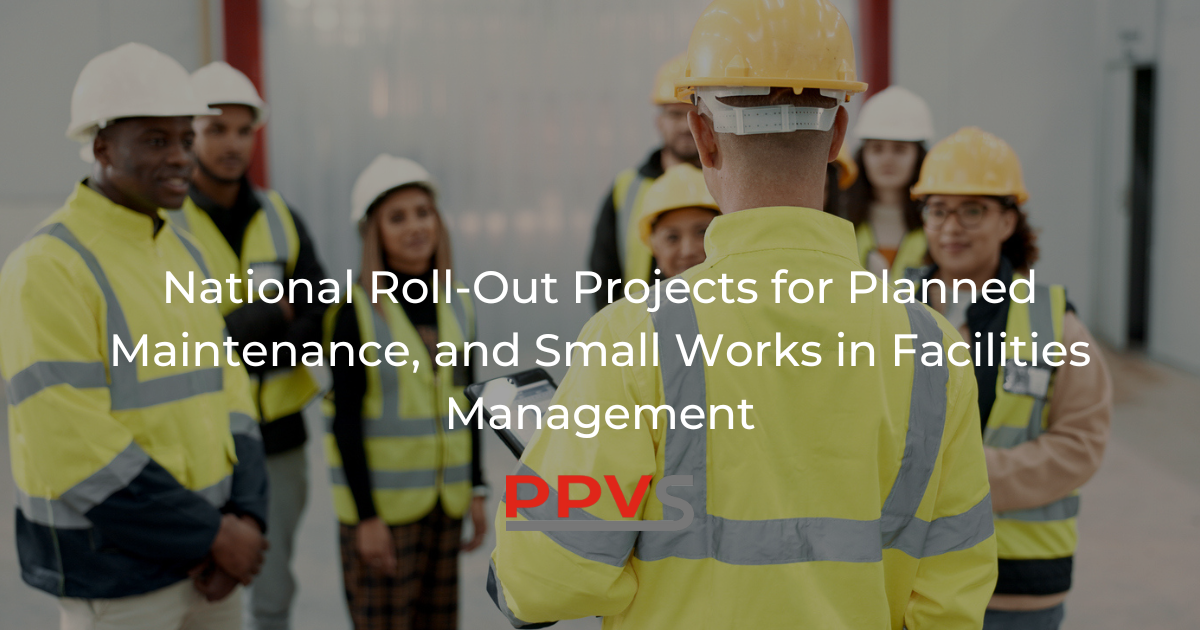PPVS Complete Facilities Management
What are Groundworks?
Developers can hire multiple contractors to do different parts of the groundwork, but it’s becoming more common to settle on a single contractor for the entire project. Preparing the ground, erecting substructure elements and floor slabs, and generally preparing the site for above-ground construction to begin are all part of groundworks. Groundworks may include the following elements:
- Excavation, remediation, and underpinning
- Drainage and sewer connections
- Gas, electricity, phone, and cable service ducts
- Concrete substructure and basements
External works may also be included as well as foundations, floor slabs, roads and driveways.
Why is Groundworks Important?
When it comes to building structures, a solid foundation is essential. After all, the foundation will bear the entire weight of the structure. Any building project’s success hinges on proper groundwork. Keep in mind that in the construction sector, the foundation is crucial to the complete process. As a result, it acts as the starting point for any project. Groundwork is critical to every construction project for a variety of reasons. It aids in the design and construction of the building’s layout and structure, as well as provides the necessary strength to support the structure’s weight.
The Stages of Groundworks?
Any good building project will follow a series of steps that have been meticulously planned. Each stage must take place in the correct order. The stages work together to guarantee that the finished construction is stable. These stages ensure that everything operates smoothly during the groundwork process. The only thing that might happen before a project’s groundworks phase is the demolition of old structures to make space for the new project.
The construction process is divided into six stages, which are as follows:
- Conceptualising, designing, and planning a project
- Permits for construction
- Pre-construction\Procurement
- Construction
- Post-construction
With well-defined goals and objectives, proper project management provides logical and clear recommendations on what to expect in each phase.
Ground Investigation
A ground investigation is an intrusive examination used for geotechnical and environmental applications to determine the soil and rock profile, and characteristics. The goal of a Ground Investigation is to acquire information about the ground conditions in order to produce cost-effective and safe designs and to minimise the incidence and impact of unforeseen situations as much as possible. Ground investigations are carried out to meet the needs of our clients, as well as the requirements of any regulatory authorities, local government departments, and so on.
Site Clearance
The disposal of all accumulated waste from an area to ensure that it is free of any hazards, obstructions, or mess is known as site clearing. When a job site needs to be prepped for future development or when a former development needs to be demolished, this service is frequently used. Whatever the situation may be, the site must be cleared of all waste. Demolition and site clearance services can be obtained from the same company normally, like ourselves here at PPVS saving money and speeding up the development process.
What are Foundations?
The lowest section of a building or civil structure that is in direct contact with the soil and securely distributes weight from the structure to the soil is called the foundation. In general, there are two types of foundations: shallow foundations and deep foundations. The load is transferred to a layer present at a shallow depth via a shallow foundation. The load is transferred to a deeper depth below the ground surface by the deep foundation. A tall building, such as a skyscraper, or one built on particularly unstable terrain, necessitates a deep foundation. If the structure is intended to expand vertically in the future, a deep foundation should be considered.
The method of constructing foundations for a structure is known as piling. Piling is the process of driving or boring piles through the ground along a predetermined length of area with the goal of carrying and transferring loads to soil that is considered to be weak in structure owing to soil conditions. Essentially, this implies that when the bearing capacity of the soil isn’t enough for the structural burden of major construction, piling is utilised.
The Importance of Health & Safety in Construction
Risks and dangers on construction sites necessitate thorough risk assessments and safety precautions to keep construction employees safe. Construction health and safety should be at the forefront of any training or operation, and all contractors should have completed health and safety checks before beginning work on building sites.
Choosing the Right Contractor
The most difficult component of any home improvement project for most homeowners isn’t the work itself; it’s selecting a professional and trusted contractor to complete it. Everyone has heard horror stories about contractors who tore up the kitchen and never came back, or jobs that ended up costing three times what the contractor had estimated. When choosing the right contractor, you need to ensure that they have governing bodies, such as SafeContractor, Chas, Constructionline, SMAS Worksafe, and Achillies, just to name a few, that are routinely audited.
Here at PPVS, we have years of experience in delivering expert groundworks services to commercial and industrial properties across the UK – if you’re looking for a reliable and professional groundworks contractor, get in touch today.

Get in touch to see how we can help with your Facilities Management.
For general enquiries please fill out the form and our team will be back in touch. Or give us a call or email using the details below.








